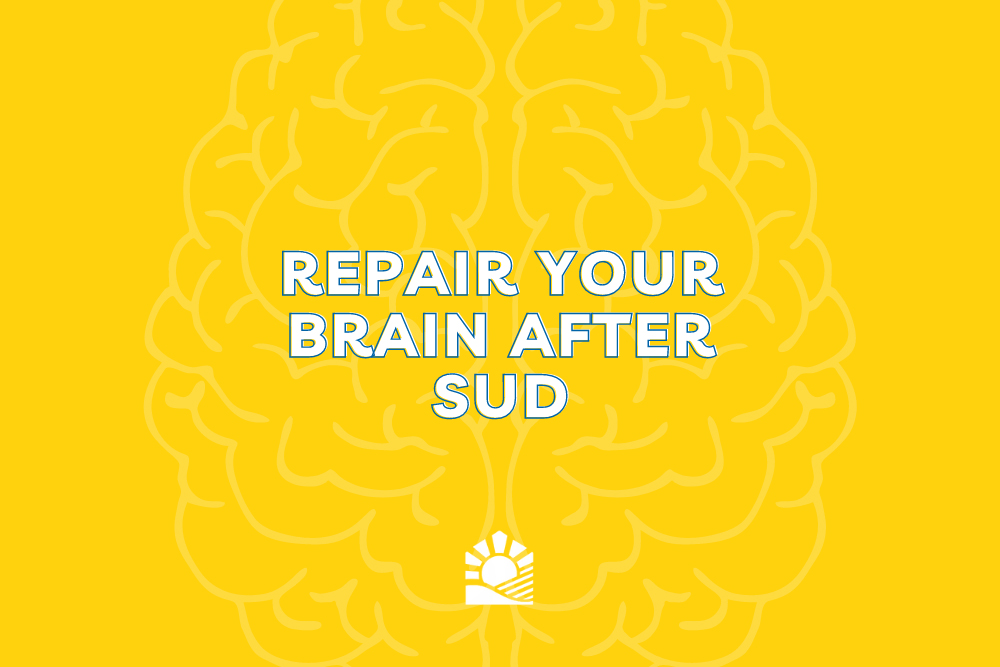Read the latest and greatest from our team
of incredible specialists.

Beach House Recovery Center » Blog » How to Repair Your Brain After Drug Use
Can you remember learning a new ability, like riding a bike or tying your shoes? At first, it probably felt like you’d never get the hang of it because you lacked the experience necessary to do it well. But now, you can do these things automatically. That’s because your brain is flexible and adapts in response to repeated behaviors. With practice, you acquire many new abilities throughout your lifetime – all thanks to a quality called neuroplasticity.
Researchers used to think we were all born with hardwired brains, but that view has evolved over the decades. With everything science tells us, we now understand that long-term substance use fundamentally changes people’s brains. However, there’s a positive aspect to this, too, which is that you can repair your brain even after years of addiction.

Drugs and alcohol can affect your mental and physical health in multiple ways. These addictive substances flood your brain with dopamine. This neurotransmitter is naturally present whenever you do something enjoyable, like exercising or meeting a friend. The danger of drugs and alcohol is that they cause your brain to release much more dopamine than it typically does.
As casual drinking and drug use progress into a tolerance, natural dopamine levels decrease, forcing you to use more of the substance to achieve the same desired effect. In time, your physical and psychological dependence may increase to a point where the addictive behavior is no longer enjoyable, but something you must do to avoid unpleasant withdrawal symptoms. Despite the reduced reward, neuroplasticity makes maintaining addiction the most natural course of action.
Though neuroplasticity might be responsible for fueling the cycle of addiction, it’s also essential to the recovery journey. By harnessing your brain’s malleability, you can form new reward pathways associated with healthy behaviors. Through focused treatment, you can repair your brain, break out of self-destructive patterns and learn to become a happier, healthier and more confident person.
Specifically, meditation has proven benefits in encouraging the brain to heal itself. Through mindfulness meditation, people living with substance abuse disorders can learn healthier ways to respond to cravings, triggers, and complicated emotions like shame. Meditation also teaches recovering addicts to be content about where they are in the present, instead of getting tangled in worries about past mistakes or future scenarios that might never happen.
When you’re working to overcome addiction and a co-occurring mental health disorder such as depression or PTSD, you can rely on neuroplasticity to help you recover from your dual diagnosis one step at a time. You’re never alone on your journey to find freedom. At Beach House, we have a compassionate, patient-first philosophy, and we provide industry-leading, evidence-based treatments tailored to your specific needs. Contact our admissions counselors to learn more about starting your new life in a beautiful beachfront setting.
Whether you’re researching for yourself or a loved one, Beach House can help. We understand that this is a serious time in your life and that the treatment center you choose matters. We want you to feel comfortable and empowered to make the right decision for yourself, a friend, or a family member. This is why a counselor is waiting and available to answer your questions and help put your mind at ease regarding the next steps. Many of the staff at Beach House have walked in your shoes. If you feel you’re ready or want more information about how to help a loved one, we can help today. You can also learn why we are voted the #1 rehab for addiction treatment in Florida.
We accept most major insurance plans and can verify your benefits quickly and confidentially.
We’re committed to helping you access the care you need, our admissions counselors can guide you through your coverage options and available resources.





"*" indicates required fields